About Inguma
UEU (Udako Euskal Unibertsitatea - Basque Summer University) presents, under the patronage of the Provincial Council of Bizkaia, Inguma the database of the Basque scientific-intellectual community. Inguma is a source of basic information about everything that has been published in an oral and written way in Basque and within the academic world in the last 50 years, since the guidelines that led to the unification of the literary Basque language (euskera batua) began to be established.
The main goal of Inguma is to make the Basque academic production known. As a matter of fact, this is not a national bibliography, and neither a description or an evaluation (the quality of the language, for instance) of each document is offered, since Inguma is born with the intention of being an effective and fast tool to make all Basque products and authors known.
We collected the complete production in Basque at the university level, including products of very different type: oral (talks, seminars, courses, among others) as well as written (that is, books, articles, prefaces, reviews).
Concerning the information about authors, together with their first and last names we also include their e-mail addresses, a necessary information in order to make communication among the participants in the Basque scientific community possible. In order to reach this goal, public access to of Inguma must be as widespread as possible. For that reason, Inguma has a Web format and can be reached at www.inguma.eus.
What is there in Inguma at this point?
In the Inguma database along with the production of UEU (courses, talk, lectures, books and articles), the following are included: 134 journals written in Basque and in Spanish or French from which papers written in Basque have been taken out, books written in Basque from 61 publishing houses, and many institutions´ courses and lectures. Therefore, the lecturers who teach in basque in many universities (UPV/EHU, Universidad de Deusto/Deustuko Unibertsitatea, UPNA/NUP and UN/NU) have been brought into Inguma.
At this point, the number of authors present in our Euskal Komunitate Zientifikoaren datu-basea (The Database of the Basque Scientific Community) totals 14.326, distributed in 48.479 documents. Out of these documents, 16.609 are articles, 2.455 books, 5.470 preface/review/book article, 681 doctorate thesis, 93 research project, 9.070 talks, 1.928 courses and 4.827 lectures.
Note: the amount of collected e-mail addresses is very small as compared to the total number of authors. There are many gaps and help is needed from the authors in order to fill them up and update the list. We kindly ask you to send the relevant information to the following address: inguma@ueu.eus. If any author wants to erase his/her name from Inguma or for any comment or change of address, please also contact the same e-mail address.
How to use Inguma?
Like most databases, Inguma has different choices to look for information on authors and documents. In order for the search to be an easy process it has been divided into two main groups. The first is devoted to the authors and has three areas: name, theme-entry and UDC. In the second, documents may be searched by the following: title, document type, UDC, theme-entry, institution, faculty and Department.
What an AUTHOR is
We call author the person that produced a document, either orally or in a written format. Typing the authors first or last name with no break is enough to access the information about all the authors corresponding to that name. In addition to their names, the only personal information about the author is the e-mail address (s)he uses for professional contact (if available). In any event, an e-mail message by the author is enough for the information to be updated or deleted from the database (if requested).
No special onomastics rule or orthographic criterion will be followed in Inguma: the name and surname of authors will appear in the database as they appear in the original sources, and if the appear in different ways, the most frequent one will be chosen for Inguma.
Concerning oral products, in the case of courses, the name of author can refer to the organizer of the course -usually the head of the departament- or to a single speaker that taught the entire course. We will not distinguish between these two types of authors.
Due to lack of information, information about the author of some courses or talks could not be found. In that case, we use the formula Author unknown to express that the author of a course is not known, and Speaker unknown in the case of talks.
What a TITLE is
It refers to the document itself, either oral or written. The following are the pieces of information that appear together with the title: author, date, organization, type of document, department or faculty, UDC, area of study. Typing the first words of the documents corresponding to those words, in alphabetical order. No special ortographic criterion has been followed for the titles: the books published and the titles of articles appear as in the original source, and the same happens with talks and courses
What a DOCUMENT TYPE is
It refers to any cultural product created by someone at the university level. There are two main types of documents: those created orally and written ones. Within each group, however, the following distinctions have been made:
A) Orally created documents:
Lecture (Irakasgaia): a topic taught within a given period of time in a faculty or department.
Talk (Hitzaldia): a topic taught in a faculty or department.
Course (Ikastaroa): a series of lectures about a given topic taught within a given period of time in a faculty or department.
B) Written documents:
Article (Artikulua): a work written by one or more authors in a journal belonging to some institution.
Preface/Review/Book Article (H.A.A.): this category includes three types of documents:
Review (AP): an author´s criticism about some other author´s book or article
Book Article (AR): each chapter of a collective book.
Critical Edition (EK): a written which includes the critical reprint of old books or anthology books
Book (Liburua): it refers to any independent publication written by one or more authors.
Translation (Itzulpena): translation into Basque of a text originally written in any other language. The original text may belong to the category of books or journal article.
C) Other kind of documents:
Research project (Ikerkuntza-proiektua): a scientific research project, containing funding by an institution.
Doctorate thesis (Doktorego-tesia).
What a UDC is
Universal Decimal Classification (UDC) is a system to classify all sciences and disciplines. Originally created by Melvil Dewy in 1876, the UDC is currently the most popular classification system in the world; for that reason, Inguma also uses it.
If we were to exhaust all its possibilities, the UDC would have 160.000 different entries; however we have chosen an hipershort version of 118 entries here, wish also includes some small modifications. Each topic covers a large area of knowledge to which a specific number is assigned. Each document has one such number. Next, the content of each number in the list is explained:
0 Generalities. Science and knowledge. Information. Documentation. Librarianship. Organizations. Documents and publications
01 Bibliography and bibliographies. Catalogues
02 Librarianship
03 General reference works. Encyclopaedias. Dictionaries
05 Serial publications. Periodicals
06 Organizations and other types of cooperation. Congresses. Museums
07 Newspapers. The Press. Journalism
08 Polygraphies. Collective works
09 Manuscripts. Rare and remarkable works
1 Philosophy
11 Metaphysics
13 Philosophy of mind and spirit
14 Philosophical systems and points of view
15 Psychology
16 Logic. Epìstemology. Theory of knowledge
17 Moral philosophy. Ethics
2 Religion. Theology
3 Social Sciences
30 Theories, methodology. Sociography
31 Demography. Sociology. Statistics
32 Politics
33 Economics. Economic science
34 Law. Jurisprudence
35 Public administration. Government. Military affairs
36 Ensuring the mental and material necessities of life. Social aid. Insurance
37 Education. Teaching. Training. Leisure
39 Ethnology. Ethnography. Folklore
4 Basque
41 Basque teaching
42 Sociolinguistics. Linguistics policy
43 Terminology
44 Versolarism
5 Mathematics and natural sciences
51 Mathematics
52 Astronomy. Astrophysics. Space research
53 Physics
54 Chemistry. Mineralogy
55 Geology. Metereology
56 Palaeontology
57 Biological sciences in general
58 Botany
59 Zoology
6 Applied sciences. Medicine. Technology
61 Medical sciences
62 Engineering. Technology in general
63 Agriculture. Forestry. Farming
64 Home economics. Domestic science. Housekeeping
65 Management and organization of industry, trade and communication
66 Chemical technology. Chemical and related industries
67 Various industries, trades and crafts
68 Computer science
69 Building (construction) trade. Building materials. Building practice and procedure
7 The arts. Recreation. Sport. Entertainment
71 Physical planning. Regional, town and country planning
72 Architecture
73 Sculpture
74 Drawing. Design. Applied arts and crafts
75 Painting
76 Graphic arts. Graphics
77 Photography and similar processes
78 Music
79 Theatre. Entertainment.
8 Language. Linguistics. Literature
81 Linguistics and languages
82 Literature
9 Geography. Biography. History
90 Archaeology. Prehistory
91 Geography
92 Biographical and related studies
93 History
What THEMATIC ENTRIES are
The list of thematic entries in Inguma is a closed and controlled list created by the documentalist people at UEU. It contains two types of entries: the ones that describe an area of studies (physics, history, etc.) and toponyms (Basque Country, European Community, etc.). The first ones describe the topic of the document, and the second ones whether it is related to a specific country or society in some way or other (History and Basque Country, or Economy and European Community). Each document contains at most three thematic entries and at least one.
In order to make an appropriate search by thematic entries possible, topics are organized in two different ways:
A) All thematic entries are organized following an alphabetic order (from A to Z).
B) All thematic entries are organized in seven major areas. These areas cover either different areas of studies Social Sciences (Gizarte-Zientziak), Human Sciences (Giza Zientziak), Sciences (Zientziak), Engineering and Technology (Ingeniaritza eta Teknika), Health Science (Osasun-Zientziak), Toponimy or Other. As for the area of studies, each topic may be linked to more than one area (e.g., Dialects may be located in Social Sciences and Human Science). Users must be aware of the fact that this case, like many others, is not a science (thus, Ecology , for instance, appears within Social Science, but it is not a science). Topics that have no clear connection to an area of study (e.g. Ecology) and some topics that were not located in previous sections (e.g., Bullfighting ) are mentioned under Other.
What ORGANIZATIONS are
It refers to any corporation that generates and/or publishes written or oral products.
Department
Units in the structure of universities and cultural organizations. Each department includes a specific scientific discipline. For the moment, only departments at UEU are included. They amount to 26 departments more less, but their names have changed throughout the years, new departments have been created and old ones have disappeared.
School/Faculty
The headquarters of each scientific discipline at the University. For the moment, there are only faculties of the University of the Basque Country.







